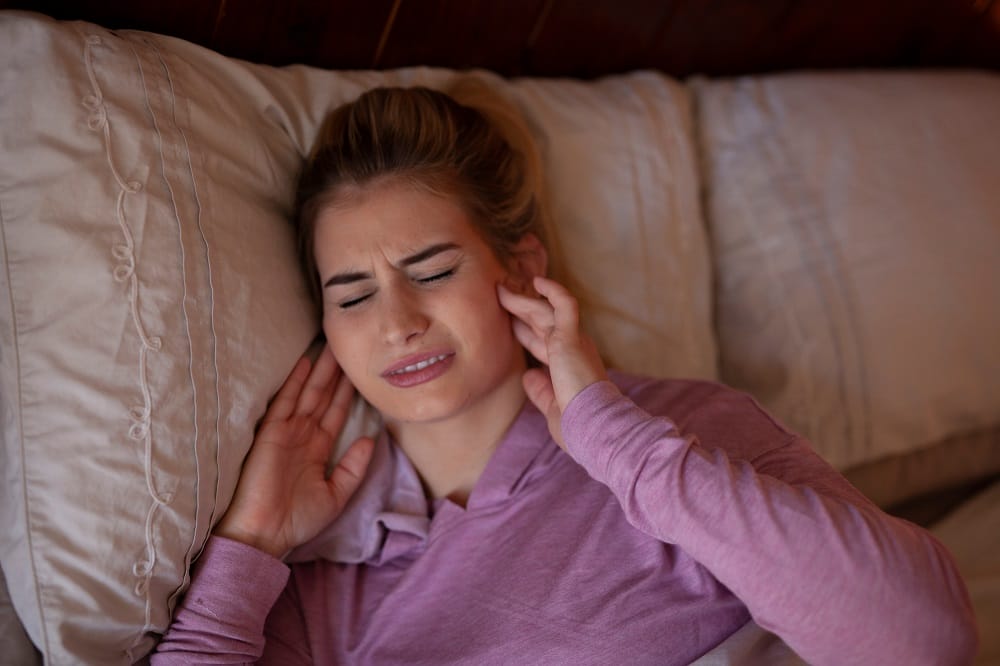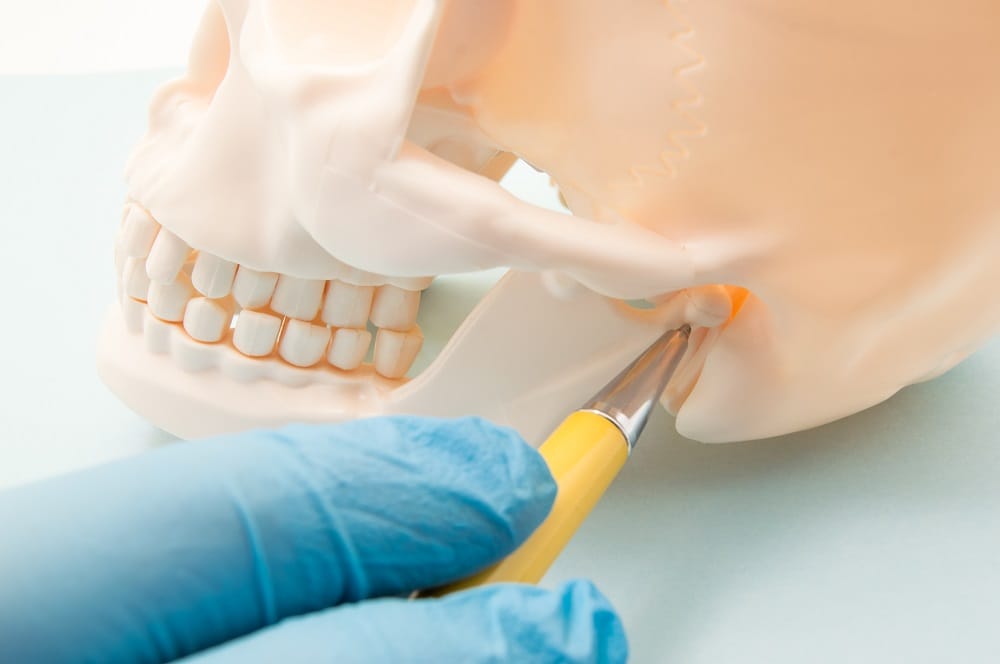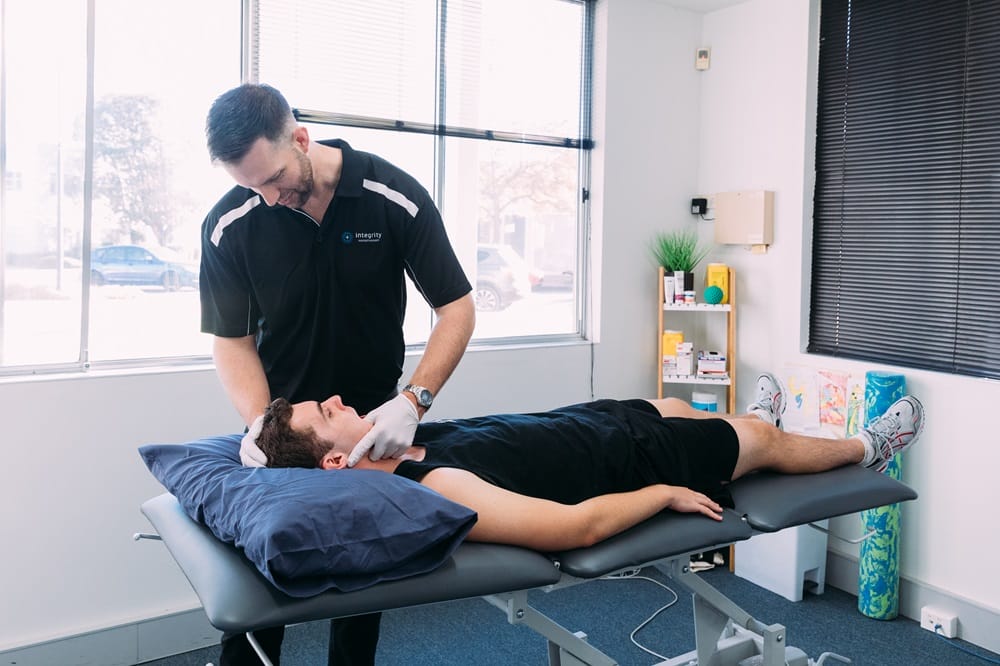
If you’re getting frequent headaches and just can’t figure out why, let’s talk about your jaw.
Yep, that’s right. Your jaw.
A lot of people don’t realise that jaw pain and headaches are often connected. You might think it’s stress, lack of sleep, or even staring at your screen too long (which could still be part of it), but jaw tension or misalignment could be playing a much bigger role than you’d expect.
The good news? Well, you’re not alone, and this is more common than you might think. If you’re dealing with what we call jaw pain headaches, there are ways to manage it—and you don’t have to live with the pain.

How jaw pain can cause headaches
The temporomandibular joint (TMJ)—the hinge that connects your jaw to your skull—works closely with muscles in your face, head, and neck. When your neck is tight or if there’s tension in the jaw, or both, these irritated muscles, can lead to headaches.
For example, if you clench your jaw without even realising it (like when you’re stressed, overworked or concentrating hard), those muscles stay tight, and the pain can travel up to your temples or behind your eyes. This is where those frustrating jaw pain headaches come in, often mistaken for regular tension headaches or even migraines.
Symptoms of jaw-related headaches might include:
- Clicking or popping sounds in your jaw
- Facial pain, especially around the temples, ears or cheeks
- Soreness when chewing or opening your mouth wide
Understanding this connection can be a game changer in managing those frequent headaches.
Common causes of jaw pain and headaches
Jaw pain that leads to headaches can be triggered by several everyday habits and conditions. Here are some of the most common culprits.
1. Teeth grinding (bruxism)
Grinding or clenching your teeth—often happening at night while you sleep—puts constant pressure on the jaw. Over time, this strain can lead to jaw pain and headaches, especially when you wake up in the morning.
2. Jaw misalignment
If your jaw isn’t lined up properly or doesn’t move in a way that is straight and symmetrical, it can affect how your muscles work, leading to extra strain on your jaw and head. This can be from natural alignment issues, stress and tension, traumatic injuries, or changes after dental work.
TMJ disorders
Problems with the TMJ are a major cause of jaw pain and headaches. TMJ disorders can cause pain in the joint and surrounding muscles, often leading to tension headaches.
Stress and tension
Stress, being overworked, or simply expecting too much of ourselves can cause us to unknowingly clench our jaw or tighten our facial muscles. This constant tension may lead to soreness in the jaw, neck, and eventually headaches.
Poor posture
Spending hours hunched over a computer or phone can cause something called “tech neck,” which can lead to jaw pain. A forward head posture puts strain on the neck and jaw muscles, often triggering headaches. Research tells us that while there is no perfect posture exactly, it is really important that we don’t get stuck in one place, particularly in extremes of position, such as sitting twisted, leaning forward too much or to one side. A neutral posture is best, with regular breaks to move and relieve tension.
How to relieve jaw pain and headaches at home
Dealing with jaw pain headaches doesn’t always require a trip to the clinic right away. There are simple, effective remedies you can try at home to ease the tension and prevent headaches from coming back.
1. Jaw relaxation exercises
Gentle jaw exercises can help reduce tension and strengthen the muscles around the TMJ.
Try opening and closing your mouth slowly while keeping your jaw relaxed. You can also gently move your jaw side-to-side to loosen any tightness.
2. Hot or cold compresses
Applying heat or cold to the jaw area can bring relief. Use a warm towel or heating pad to relax tight muscles, or a cold pack to reduce inflammation and calm pain. Alternate between heat and cold if needed.
3. Massage techniques for the jaw and head
A gentle massage around the jaw and temples can relieve tightness and improve circulation. Focus on the areas where you feel tension, using your fingertips to apply light pressure in circular motions. You can even use tools like massage balls to target specific areas.
4. Stress management
Since stress is a big trigger for jaw clenching and tension, managing stress can help reduce headaches. Although easier said than done, we recommend you incorporate relaxation techniques such as deep breathing, meditation, or yoga into your routine to keep your muscles (and mind) more relaxed. Sometimes we’re not sure if we’re stressed and we all use different language to express this. Sometimes we feel overworked, under pressure or ruminate on all the things we have to do for the day. These are all indications of an overstressed system. Consider taking time out to incorporate fun, play and other forms of self care into your day.
5. Correcting posture
Pay attention to your posture, especially if you spend a lot of time on a computer or phone. Keep your head aligned over your shoulders and avoid slouching to reduce strain on your neck and jaw. Taking breaks and move, doing neck stretches can also help.
6. Dietary changes
What you eat can affect your jaw pain. Avoid tough or chewy foods that put extra strain on the jaw, like gum, hard candies, or tough meats. Instead, opt for softer foods that are easier on your jaw muscles.
7. Try a mouthguard
If you grind your teeth at night, consider using a mouthguard to prevent further damage to your jaw. Custom mouthguards made by a dentist or oral medicine specialist can be particularly helpful in reducing pressure on the TMJ and preventing headaches.
When should you seek professional help from a physio for jaw pain?
While home remedies can help ease jaw pain headaches, sometimes it’s best to consult a professional. If you’ve tried managing the pain at home but your symptoms persist, worsen, or interfere with your daily life, it’s time to seek expert advice.
- Persistent or severe pain: If the pain doesn’t go away or keeps getting worse, it could be a sign of an underlying issue with your TMJ or jaw alignment that needs attention.
- Difficulty opening or moving your jaw: If your jaw feels stuck or you hear a clicking or popping sound when you move it, a physiotherapist can help identify the problem and recommend treatments.
- Frequent headaches: If headaches are becoming a regular part of your day, it’s worth having a professional assess whether your jaw is the cause.
Remember, everyone’s jaw and headache triggers are different. Seeking professional care can save you time and help address the root cause of your discomfort.
When your jaw is a real headache – we can help!
Frequent headaches can be frustrating, especially when the cause isn’t obvious. But if you’re experiencing jaw pain alongside those headaches, it’s likely the two are connected. While home remedies like jaw exercises, posture correction, and stress management can provide relief, sometimes a deeper issue needs addressing.
At Integrity Physiotherapy, we offer jaw pain treatment in Perth to help you find lasting relief. Our team can assess your symptoms, identify the root cause, and create a tailored plan to ease both jaw pain and headaches.
Don’t let pain hold you back—book an appointment today and let us help you get back to feeling your best.



